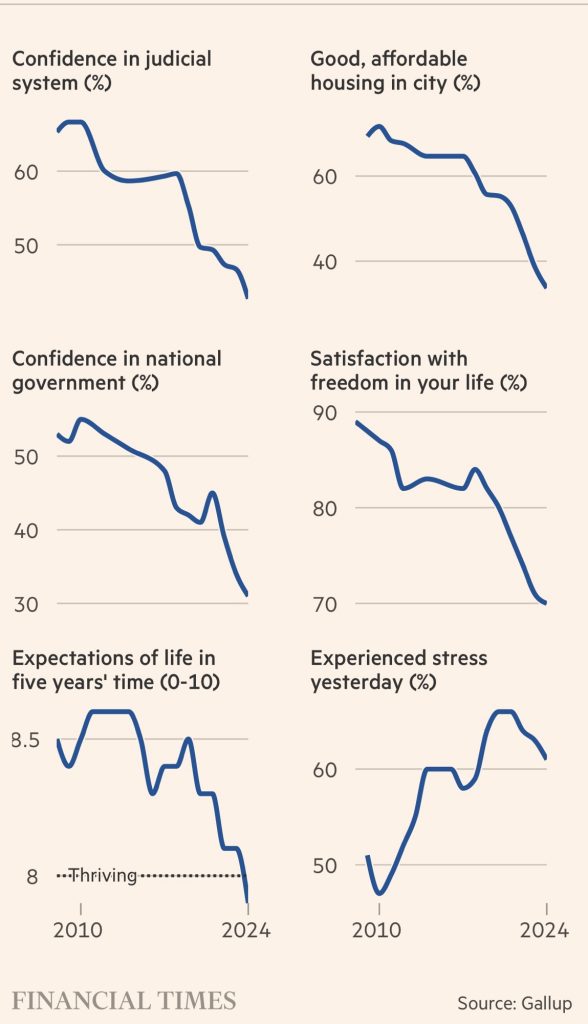I am backing off some of my “current thing” hyper vigilance for a moment. I need to shake off the noise and find my signal.
The band of possibilities is simply so wide that it feels pointless to react. Who you are will determine everything from here. You must go into the future based on your values. I must strip back to see myself clearly.
The complaints about our geopolitical moment (true and righteous as they may be) are set against a great power conflict that will play out over multiple decades of technological change.
It’s yet unwritten though I have some ambition that we can all play a part in the restructuring of a knowledge abundant world.
The trouble with accelerating into the turn is the sheer stress. We know we need change but how we achieve it is messy.
It seems in some areas we will take the low road. It is a reasonable worry that we are seeing all of the downsides of American choices while the upsides are harder to see. I feel as I’ve only seen the fears I’d had and the changes are made at great cost.
We fucked around and it is finding out season. The present is all ephemera. I need to hold it lightly. The stress it induces serves no purpose. It will pass. I will adapt.

